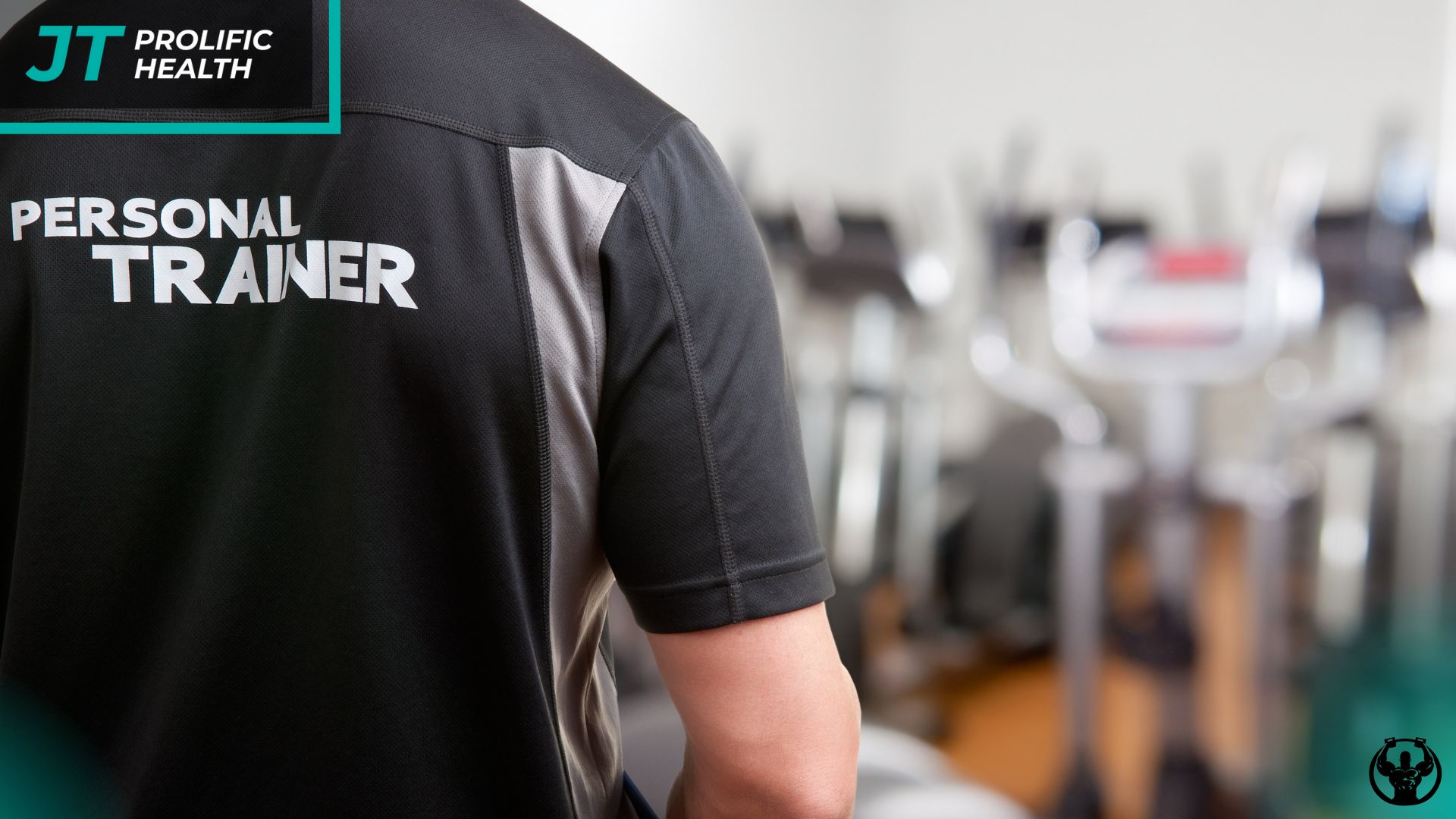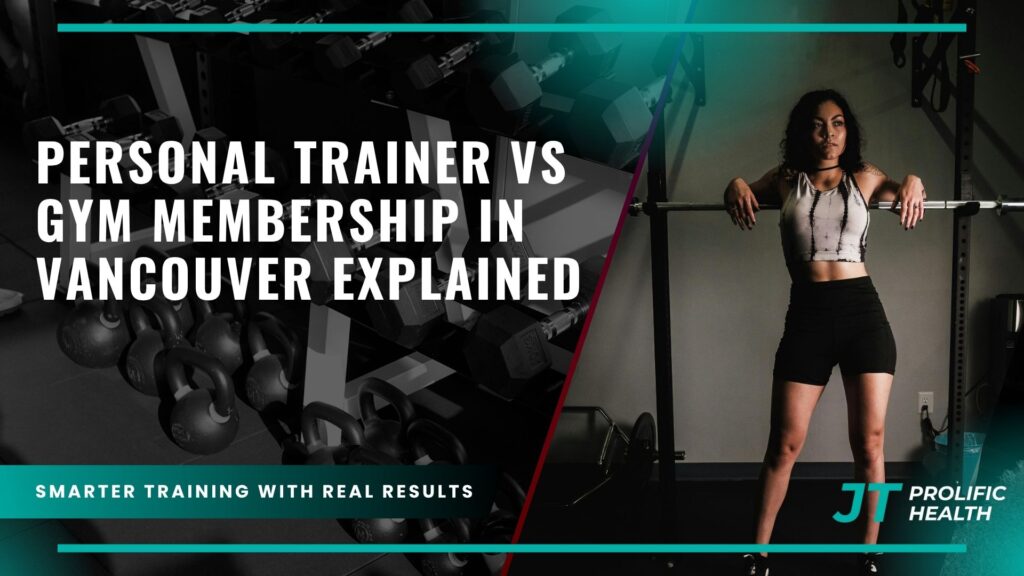When it comes to achieving your fitness goals in Vancouver, one of the most important decisions you’ll face is choosing between hiring a personal trainer or purchasing a gym membership. This choice can significantly impact your fitness journey, affecting everything from your motivation levels to the results you achieve. Vancouver’s fitness landscape offers numerous options for both approaches, making the decision even more complex for those looking to improve their health and wellness.
The debate between personal trainer vs gym membership in Vancouver isn’t simply about cost – it’s about understanding your individual needs, fitness level, goals, and lifestyle preferences. Each option comes with distinct advantages and potential drawbacks that can make or break your commitment to a healthier lifestyle. A personal trainer provides individualized attention, expertise, and accountability that can accelerate your progress, while a gym membership offers flexibility, variety, and the independence to work out on your own schedule.
Vancouver’s diverse population includes busy professionals, students, families, and retirees, each with unique fitness requirements and constraints. The city’s health-conscious culture and abundance of fitness facilities means you have access to high-quality options regardless of which path you choose. However, making the wrong choice for your specific situation can lead to wasted money, frustration, and ultimately, abandoning your fitness goals altogether.
Understanding the nuances of each option is crucial for making an informed decision that aligns with your budget, schedule, and fitness aspirations. This comprehensive analysis will help you navigate the personal trainer vs gym membership decision by examining the benefits, drawbacks, costs, and suitability of each approach for different types of individuals in Vancouver’s unique fitness environment.
Key Takeaways
For additional context, see this comprehensive guide.
- Personal trainers provide individualized attention and expertise that can significantly accelerate your fitness progress, especially for beginners or those with specific goals like injury recovery or muscle building.
- Gym memberships offer greater flexibility and variety in workout options, allowing you to exercise on your own schedule and explore different types of equipment and classes.
- Cost considerations vary significantly between the two options, with personal training typically requiring a higher upfront investment but potentially offering better long-term value through faster results and injury prevention.
- Accountability and motivation levels differ substantially between having a dedicated trainer versus relying on self-motivation in a gym environment.
- Your fitness experience and knowledge level should heavily influence your decision, as beginners often benefit more from professional guidance while experienced exercisers may thrive with gym independence.
- Time efficiency can favor personal training for busy professionals who need maximum results in minimal time, while gym memberships suit those with flexible schedules who enjoy longer, varied workouts.
- Hybrid approaches are increasingly popular in Vancouver, combining periodic personal training sessions with independent gym work to maximize benefits while managing costs.
Overview of Personal Training vs Gym Membership Options

For additional context, see detailed information on this topic.
Vancouver’s fitness industry has evolved significantly over the past decade, offering residents an impressive array of options for both personal training and gym memberships. The city’s health-conscious population has driven innovation in fitness services, resulting in a competitive market that benefits consumers through diverse pricing structures, specialized services, and high-quality facilities.
Personal training in Vancouver ranges from high-end boutique studios in downtown areas to more affordable options in suburban locations like Richmond and Burnaby. Many personal trainers offer flexible arrangements, including in-home sessions, outdoor training in Vancouver’s beautiful parks, and small group training options that provide a middle ground between individual attention and cost-effectiveness. The city’s personal trainers are generally well-educated and certified, with many holding advanced degrees in kinesiology, exercise science, or related fields.
Gym memberships in Vancouver vary dramatically in terms of facilities, amenities, and pricing. From budget-friendly chain gyms with basic equipment to luxury fitness clubs featuring pools, spas, and extensive class schedules, there’s an option for virtually every budget and preference. Many Vancouver gyms have embraced technology, offering app-based workout tracking, virtual classes, and advanced equipment that can provide some of the guidance traditionally associated with personal training.
The geographical layout of Vancouver also influences these choices. Downtown professionals might prioritize convenience and efficiency, making personal training or premium gym memberships more attractive. Suburban residents often have more time flexibility and may prefer larger gym facilities with extensive amenities. The city’s commitment to outdoor recreation also means many fitness enthusiasts combine indoor training with outdoor activities like hiking, cycling, and water sports.
Benefits and Drawbacks of Personal Training


For additional context, see our in-depth resource.
Personal training offers unparalleled individualization that can transform your fitness journey in ways that generic gym workouts simply cannot match. When you work with a qualified personal trainer, you receive a completely customized approach that considers your current fitness level, health history, specific goals, and any physical limitations or injuries. This level of personalization is particularly valuable for individuals who are new to exercise, returning after a long break, or dealing with specific challenges like chronic pain or mobility issues.
The expertise that personal trainers bring extends far beyond exercise selection and form correction. Professional trainers understand the science of progressive overload, periodization, and recovery, ensuring that your workouts are not only effective but also safe and sustainable. They can identify and correct movement patterns that might lead to injury, teach proper breathing techniques, and adjust exercises in real-time based on how your body responds during each session. For those interested in specialized muscle building approaches, personal trainers can provide the technical knowledge and progressive programming that’s essential for optimal results.
Accountability represents one of the strongest advantages of personal training. Having a scheduled appointment with a professional creates a commitment that’s much harder to break than a self-imposed gym session. This accountability extends beyond just showing up – your trainer will push you through challenging workouts, ensure you’re progressing appropriately, and help you stay consistent with your routine even when motivation wanes. The relationship with a personal trainer often becomes a source of ongoing support and encouragement that can be crucial during difficult periods of your fitness journey.
However, personal training does come with significant drawbacks that must be considered. The cost is the most obvious barrier, with quality personal training in Vancouver typically ranging from $80 to $150 per session. This expense can quickly add up, making it financially challenging for many people to maintain long-term. Additionally, your schedule becomes tied to your trainer’s availability, which can create logistical challenges for people with unpredictable work schedules or family commitments.
Another potential drawback is the dependency that can develop on your trainer’s presence and guidance. Some clients find it difficult to maintain their fitness routine when their trainer is unavailable or when they can no longer afford regular sessions. This dependency can actually hinder the development of self-reliance and intrinsic motivation that’s necessary for long-term fitness success.
Advantages and Disadvantages of Gym Memberships


Gym memberships provide an entirely different approach to fitness that emphasizes independence, variety, and flexibility. The primary advantage of a gym membership is the freedom it offers – you can work out whenever the facility is open, choose from a wide variety of equipment and classes, and modify your routine based on your mood, energy level, or specific goals for that day. This flexibility is particularly valuable for people with irregular schedules or those who enjoy variety in their workouts.
The cost-effectiveness of gym memberships makes fitness accessible to a broader range of people. Vancouver gym memberships typically range from $30 to $150 per month, depending on the facility and amenities included. Even premium memberships are generally more affordable than regular personal training sessions, making them an attractive option for budget-conscious individuals who still want access to quality fitness facilities. Many gyms also offer additional value through group classes, swimming pools, saunas, and other amenities that would be expensive to access separately.
Modern gyms have become increasingly sophisticated in their approach to member support. Many facilities now offer complimentary fitness assessments, equipment orientations, and basic workout programming. Some gyms provide app-based workout guidance, virtual personal training options, and educational resources that can help bridge the knowledge gap between independent training and professional guidance. For busy professionals who need efficient workout solutions, understanding how to maximize limited gym time can make membership more effective.
The social aspect of gym memberships can also be highly motivating for many people. Working out alongside others can provide inspiration, create accountability through regular gym buddies, and make exercise more enjoyable. Group fitness classes, in particular, combine the energy of group dynamics with professional instruction, offering some of the benefits of personal training at a fraction of the cost.
However, gym memberships also present significant challenges that can derail fitness goals. The lack of personalized guidance means that many gym members perform exercises incorrectly, follow ineffective routines, or fail to progress appropriately over time. This can lead to plateaus, injuries, or frustration that ultimately causes people to abandon their fitness goals. The intimidating environment of busy gyms can also be overwhelming for beginners who feel self-conscious or uncertain about how to use equipment properly.
Self-motivation becomes crucial with gym memberships, and many people struggle with consistency when they don’t have external accountability. The flexibility that makes gym memberships attractive can also become a weakness when it’s too easy to skip workouts or cut sessions short. Without professional guidance, many gym members also fail to challenge themselves appropriately, leading to minimal progress despite regular attendance.
Cost Analysis and Value Comparison
Understanding the true cost of personal training versus gym memberships requires looking beyond the obvious monthly fees to consider the total value proposition, including results achieved, time invested, and long-term sustainability. Personal training sessions in Vancouver typically range from $80 to $150 per session, with most trainers recommending 2-3 sessions per week for optimal results. This translates to monthly costs between $640 and $1,800, representing a significant financial investment that’s beyond the reach of many individuals.
However, the cost per result achieved with personal training can be substantially lower than gym memberships when you factor in the efficiency and effectiveness of professionally designed workouts. Personal trainers can help clients achieve their goals in significantly less time than independent gym work, potentially reducing the total cost of reaching specific fitness milestones. Additionally, the injury prevention aspect of proper form instruction and appropriate exercise progression can save substantial money on healthcare costs and lost productivity due to fitness-related injuries.
Gym memberships in Vancouver present a more accessible entry point, with basic memberships starting around $30-50 per month and premium facilities charging $100-150 monthly. When you add the cost of occasional personal training sessions, group classes, or additional services, the total monthly investment typically remains well below the cost of regular personal training. However, the hidden costs of gym memberships can include initiation fees, annual maintenance charges, parking fees, and the potential for unused membership periods during vacations or busy work periods.
The value equation becomes more complex when considering time investment and opportunity costs. Personal training sessions are typically more time-efficient, allowing clients to achieve better results in 2-3 hours per week compared to the 4-6 hours that many gym members spend working out independently. For high-earning professionals, the time savings alone can justify the additional cost of personal training. Understanding how professional workout planning maximizes efficiency can help evaluate this time-value relationship.
Many Vancouver residents are discovering hybrid approaches that optimize both cost and effectiveness. This might involve monthly personal training sessions combined with independent gym work, seasonal personal training to establish new routines, or small group training that provides professional guidance at a reduced per-person cost. These hybrid models can provide 70-80% of personal training benefits at 40-50% of the cost, making them an attractive middle ground for many fitness enthusiasts.
Choosing Based on Your Fitness Goals and Experience Level
Your current fitness experience and specific goals should be the primary factors driving your decision between personal training and gym membership. Beginners often benefit dramatically from professional guidance, as they need to learn proper exercise techniques, understand how to structure effective workouts, and develop safe training habits that will serve them throughout their fitness journey. The learning curve for effective exercise can be steep, and mistakes made early on can lead to injuries or ineffective routines that waste time and create frustration.
For individuals returning to fitness after injury or dealing with chronic health conditions, personal training becomes even more valuable. Professional trainers can modify exercises appropriately, ensure proper progression, and coordinate with healthcare providers to create safe, effective programs. The expertise required for injury recovery and rehabilitation goes far beyond general fitness knowledge and requires specialized training that most gym members lack.
Specific goals like significant weight loss, muscle building, or athletic performance improvement often benefit from the precision and expertise that personal training provides. These goals require sophisticated programming, careful attention to progression, and often nutritional guidance that extends beyond what most gym members can provide for themselves. The accountability factor becomes particularly important for challenging goals that require consistent effort over extended periods.
Experienced exercisers who have developed good form, understand basic training principles, and have established consistent habits may find that gym memberships provide everything they need to continue progressing. These individuals often enjoy the variety and independence that gyms offer, and they may only need occasional personal training sessions to learn new techniques or break through plateaus. Their existing knowledge allows them to make effective use of gym resources without constant professional supervision.
Time constraints also play a crucial role in this decision. Busy professionals who can only dedicate 2-3 hours per week to exercise often achieve better results with personal training, as every minute is optimized for maximum effectiveness. Those with more flexible schedules might enjoy the variety and social aspects of gym workouts, even if individual sessions are less efficient. For those wondering about the optimal timing for professional guidance, understanding when to start working with a trainer can provide valuable insights.
Mental and emotional factors shouldn’t be overlooked in this decision. Some people thrive on the independence and self-direction that gym memberships provide, while others need the structure and accountability that comes with personal training. Your personality type, motivation style, and relationship with exercise should all factor into your choice. The confidence-building aspect of personal training can be particularly valuable for individuals who feel intimidated by gym environments or uncertain about their abilities.
Making the Right Choice for Your Vancouver Fitness Journey
The decision between personal training and gym membership ultimately depends on your individual circumstances, but there are practical steps you can take to make the best choice for your situation. Start by honestly assessing your current fitness level, available budget, schedule constraints, and specific goals. Consider trying both options on a short-term basis – many Vancouver gyms offer trial memberships, and most personal trainers provide consultation sessions that can help you understand what each approach offers.
At Prolific Health, we understand that every individual’s fitness journey is unique, and we work with clients to find solutions that fit their specific needs and circumstances. Whether you’re considering personal training, looking for guidance on maximizing your gym membership, or exploring hybrid approaches, our team can provide the expertise and support you need to make informed decisions about your health and fitness.
Consider your long-term fitness vision when making this decision. If your goal is to develop the knowledge and habits necessary for lifelong fitness independence, you might start with personal training to build a strong foundation and then transition to gym membership as your confidence and competence grow. Alternatively, if you prefer ongoing professional guidance and can accommodate the cost, long-term personal training might be the most effective approach for achieving and maintaining your goals.
The Vancouver fitness community offers numerous opportunities to explore both options without making long-term commitments. Many personal trainers offer package deals or seasonal programs, while gyms frequently run promotions that allow you to test their facilities and services. Take advantage of these opportunities to gain firsthand experience with both approaches before making a final decision.
Remember that your choice isn’t permanent – your fitness needs and circumstances will likely change over time, and your approach to exercise can evolve accordingly. Many successful fitness enthusiasts in Vancouver have used different combinations of personal training and gym memberships throughout their journey, adapting their approach based on changing goals, life circumstances, and financial situations. The key is making a choice that you can sustain consistently, as consistency is ultimately more important than having the “perfect” fitness setup.
Frequently Asked Questions
How much does personal training cost compared to gym memberships in Vancouver?
Personal training in Vancouver typically costs $80-150 per session, while gym memberships range from $30-150 per month. Personal training requires a significantly higher monthly investment but often provides faster, more targeted results.
Can I combine personal training with a gym membership?
Yes, many Vancouver fitness enthusiasts use hybrid approaches, such as monthly personal training sessions combined with independent gym work. This provides professional guidance while managing costs and maintaining workout variety.
How do I know if I need a personal trainer or if a gym membership is sufficient?
Consider personal training if you’re a beginner, have specific goals, need injury modifications, or require accountability. A gym membership may be sufficient if you have exercise experience, self-motivation, and enjoy workout variety.
What should beginners choose between personal training and gym membership?
Beginners often benefit more from personal training initially to learn proper form, develop safe habits, and build confidence. They can transition to gym memberships once they’ve established a solid foundation of knowledge and routine.
Are there affordable personal training options in Vancouver?
Yes, options include small group training, online coaching, occasional sessions combined with independent work, and trainers in suburban areas who may charge less than downtown professionals.
How can I maximize the value of my gym membership?
Take advantage of complimentary services like fitness assessments and equipment orientations, attend group classes, use educational resources, and consider occasional personal training sessions to improve your technique and programming.
What questions should I ask when choosing between these options?
Consider your budget, schedule flexibility, fitness experience, specific goals, need for accountability, and long-term vision for your fitness journey. Also evaluate your comfort level with independent exercise versus professional guidance.
How long should I commit to either option before evaluating results?
Give either choice at least 3-6 months for a fair evaluation. This allows time to establish routines, see initial results, and determine if the approach suits your lifestyle and preferences long-term.
Conclusion
The choice between personal training and gym membership in Vancouver ultimately comes down to understanding your individual needs, goals, and circumstances. Both options offer distinct advantages that can lead to successful fitness outcomes when properly matched to the right person. Personal training provides the expertise, accountability, and individualization that can accelerate progress and ensure safety, while gym memberships offer flexibility, variety, and cost-effectiveness that appeal to many fitness enthusiasts.
Rather than viewing this as an either-or decision, consider how both options might fit into your long-term fitness journey. Many successful individuals in Vancouver’s fitness community have used different approaches at various stages of their development, adapting their strategy based on changing goals, life circumstances, and experience levels. The key is making a choice that you can maintain consistently while continuing to challenge yourself and progress toward your goals.
Whatever you choose, remember that the best fitness approach is the one you’ll actually follow. Whether that’s the structured guidance of personal training, the independence of gym membership, or a combination of both, your commitment to consistency and gradual improvement will ultimately determine your success. Vancouver’s diverse fitness landscape provides excellent options for both paths, ensuring that you can find the support and resources necessary to achieve your health and wellness goals.




